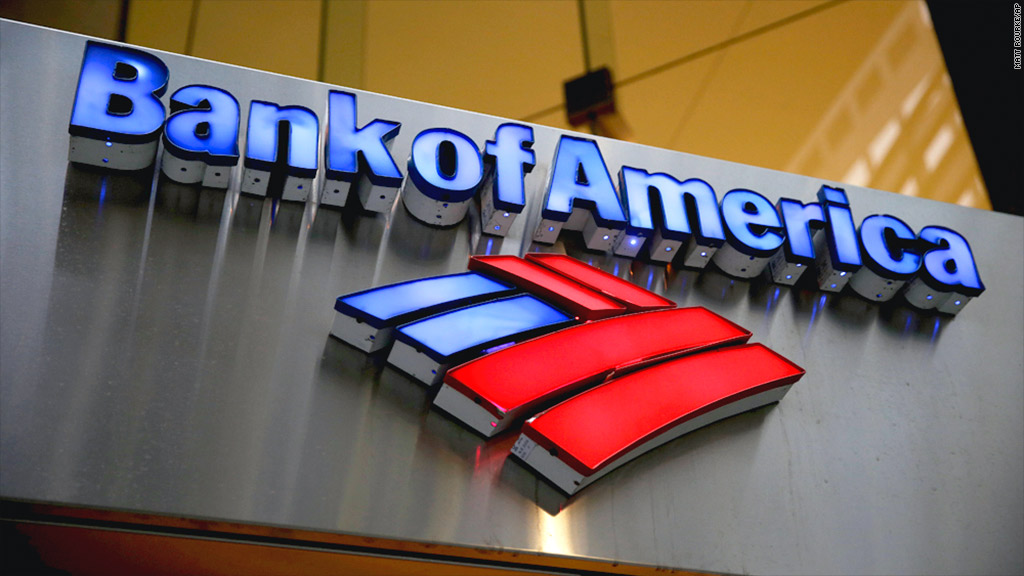by Franklin Templeton Investments
The Digest
It’s certainly been an interesting first week of the year! Clearly, events in the United States dominated headlines, with the “blue wave” Democratic Party Senate win and further stimulus hopes (inflationary) aiding a move higher in US yields. The US 10-year Treasury yield broke through 1% for the first time since March 2020 and the 10-year breakeven rate (derived from prices of inflation protected US government securities) breached 2% for the first time since late 2018. The European Union (EU) 5-year/5-year forward inflation swap also pushed higher to 1.322%, the highest level since January 2020. This played into value/cyclical strength, both in Europe and the United States.
Markets broadly continued their march higher last week, overlooking the violence at the US Capitol and alarming developments in the spread of COVID-19 with increased restrictions in the United Kingdom and Europe. Friday’s release of a disappointing US December employment report (nonfarm payrolls were well below expectations) was also shrugged off. All three major US indices were higher last week, with the S&P 500 Index closing up 1.8%. European equities saw the largest weekly gains since November’s rally, with the Stoxx Europe 600 Index closing the week up 3.0%. Markets in the Asia Pacific Region (APAC) region were also higher last week, with the MSCI APAC Index up 4.1%.1
The “January effect” of last year’s losers outperforming as the new year kicked in was complemented nicely by the news flow and move in yields. Cyclicals/value stocks outperformed defensives both in the United States and Europe.
The European winners last week included basic resources (+11.9%), oil and gas names (+9.5%), construction (+7.2%) and banks (+6.0%), and from a country perspective, the United Kingdom outperformed (FTSE 100 +6.4%).2 Even before the two Democratic Senate seat wins in the US state of Georgia were declared, we saw strength in construction names and other cyclicals in hopes that a Democratic Congressional majority will mean greater infrastructure spending. US steel was up a huge 32.9% on the week. The defensive real estate space was the loser on the week in both Europe and the United States.
Environmental, Social and Governance (ESG) stocks were another beneficiary from the “blue wave”, as President-elect Joe Biden has promised to rejoin the Paris climate accord and get the United States to carbon neutral by 2050. This added positive sentiment already buoyed by plans for the Green Deal in the EU.
Tech Keeps Going—for Now
Logic may have said that technology stocks should struggle within the week’s dynamics, but the space was surprisingly strong last week (the NASDAQ hit yet another all-time high on Thursday). It suggests that the valuation gap between value and growth will likely still take a long time to tighten significantly. This comes alongside eye-watering stats that the US technology sector is now worth more than the entire European stock market.
Tech actually outperformed on Friday in Europe, benefitting from the NASDAQ strength as well as some positive single stock headlines. It was also the top sector in the APAC region last week.
UK Outperformance
The FTSE 100 index outperformed, with the biggest move coming on Wednesday. There were a number of catalysts.
In general, UK assets have been laggards for a long time. We are seeing some reversion now that the Brexit date has passed. Many investors had steered clear of UK assets with the overhang of the Brexit cloud and uncertainty around the seemingly never-ending negotiations. Things are by no means all bright and breezy now, but a lot of that uncertainty has been removed. Reflation, Brexit, and index composition have all played into this move.
- The FTSE 100 Index has a decent weighting in the miners, helped by its exposure to China.
- Similarly, the market’s major oil exposure was a driver, with crude oil up 6.5% on the week.
- The rise in bond yields also played into the UK banks, which outperformed.
- A stronger US dollar also helped, given the FTSE 100’s exporter-heavy makeup.
Last year was a record year for mergers & acquisitions in the United Kingdom, and we have started off on a strong footing again as UK companies look to us like cheap pickings.
COVID-19 Update
Whilst markets may have marched on and vaccine rollouts have gained momentum, the new year has not yet brought any respite when it comes to the infection rate. Europe remains in the grip of COVID-19, with mutated strains causing a marked increase in the transmissibility of the virus. This has also caused an increase in the number of deaths across the continent, with hospitals reported to be nearing capacity.
The picture in the United Kingdom is an interesting one. The country has re-established itself as a hotspot for the virus, with one of the new variants becoming the most common form in the upsurge in new infections in the country.
On 5 January, the World Health Organization (WHO) reported that for every 100,000 people in the United Kingdom, 720 had the virus in the 14-day new case notification rate. That rate is around double the other large economies around Europe, with France (278 per 100,000), Germany (379), Spain (271) and Italy (338). Hospitalisations in the United Kingdom are also very high, particularly those in the south of England.
Moreover, some reports late last week suggested that as many as one in 30 people in London have had the virus in the last week. As a result, the United Kingdom has been placed in a much tighter lockdown akin to April 2020 until infection rates subside. Germany also extended lockdown measures until the end of January, and France moved to a nightly curfew in 15 departments with more rapidly climbing cases.
Whilst this all makes for grim reading, on a positive note, the UK’s mass-vaccination programme appears to be gathering pace. The latest figures show that 1.3 million people have received the vaccine. The government has claimed that 15 million people will have been vaccinated by mid-February, with the focus on people in their 70s and older (who account for 88% of the deaths in the United Kingdom), health care workers and those requiring to shield. The vaccination programme in the United Kingdom is ahead of its peers on the continent. For example, 400,000 people have been vaccinated so far in Germany and just 40,000 in France.
COVID-19 has impacted the UK’s recovery path. We saw an economic slowdown in the aftermath of Christmas as restaurants and non-essential shops closed amid the new lockdown measures, but could see a faster recovery through the summer months.
Bitcoin Bubble?
The Bitcoin bonanza has garnered a lot of attention already in 2021, as the cyber currency hit all-time highs above US$40,000 last week. There has been much debate around what or who is driving this move. The surging retail market will certainly be a factor, but it is interesting that some institutions are now looking at it, too. The London Times noted that last week saw the market value of Bitcoin and other digital currencies surpass US$1 trillion for the first time—causing some to ponder whether it is in a massive bubble.
Week in Review
Europe
We’ve covered the majority of the points already, with the US blue wave helping European equities shake off increasing COVID-19 cases and restrictions. Equities were higher across the board, driven by a cyclical/value rally. The United Kingdom’s equity market was the outperformer, whilst Spain also put in a strong showing.
With the increase in restrictions in Europe, it’s worth noting the increase in household savings throughout the initial lockdown period. Euro-area households are sitting on about €500 billion (US$615 billion) in funds saved during lockdown, which could potentially add 1% GDP growth in 2021 if 25% of the hoard is spent.3 However, the new restrictions are likely to impact 2021 GDP expectations, possibly pushing a full recovery back to 2022.
Brexit – Focus Turns to Financial Services
With the UK’s transition period coming to an end on 31 December, the United Kingdom has now begun life properly outside the EU. From a market perspective, financial services were not included in the recent trade deal, so negotiations will be ongoing between the United Kingdom and the EU in that area, with hopes of agreement on a memorandum of understanding by the end of March 2021. That said, the process will likely be difficult.
At the UK/EU border, there have been reports of some issues. For example, UK retailer Marks & Spencer commented in last week’s trading update that the new trade agreement had “very complex administrative processes” and that the new red tape, along with potential tariffs on some exports, “will significantly impact our businesses”.
United States
It was a strong start to the new year for US equity markets as confirmation of Democratic Congressional control brought a cyclical-led rally. It was a dramatic week in the world of US politics. The Democrats took control of the Senate by the narrowest of margins with a victory in the state of Georgia last week. Supporters of outgoing President Donald Trump rioted at the US Capitol.
That said, politics further underpinned the “FOMO” market rally amid expectations for additional near-term coronavirus relief as well as infrastructure stimulus further down the road—which would be easier to pass with the president and Congressional majority of the same party.
Outside of politics, last week was largely an extension of bullish narrative surrounding vaccine development, central bank liquidity tailwinds, fiscal stimulus, and upside risk to consensus economic and earnings growth expectations.
Strength in the cyclicals to start the year helped some of last year’s more notable underperformers. Energy stocks were market leaders last week amid strength in oil prices. Materials and financials were also strong. On the flipside, underperformers included real estate investment trusts, consumer staples and utilities.
As noted, oil prices rallied last week, with West Texas Intermediate (WTI) crude oil up 7.7%. Whilst the US political dynamic helped, it was Saudi Arabia’s surprise cut of 1 million barrels per day (bpd) for February and March that grabbed the headlines. That cut easily offsets the small increases granted to Russia and Kazakhstan through the OPEC+4 deal. Market expectations were for an increase of 0.5m bpd in February and a further 0.5m bpd in March. The net result now is an increase of 75,000 bpd in February and 75,000 in March. This has led analysts to predict an oil market under-supply through the latter half of 2021, which feels like a world away from the negative oil prices we witnessed last April.
Nonetheless, the main text following the OPEC meeting notes “the need for caution due to prevailing weak demand and poor refining margins, the high stock overhand and other underlying uncertainties”.
In terms of data, the December employment report was the main release last week on Friday, but the report was largely ignored. Nonfarm payrolls came in at -140,000, well below expectations for a gain. Usually, a miss of this magnitude would send markets into a tailspin, but these are not normal times and the theme of “bad news is good news” still looms large given the sizeable safety net of monetary and fiscal support.
APAC
Asian equities also saw a strong start to the year, with the MSCI Asia Pacific Index +4.1%. South Korean equities were the star performers, with the KOSPI +9.7% last week and reaching a new all-time high. Positive earnings numbers from index heavyweight Samsung were a factor. In addition, Hyundai Motors was up 28% on news of a tie up with Apple on a self-driving electric vehicles project.
Elsewhere, corporate earnings from the world’s largest contract chipmaker Taiwan Semiconductor (TSMC) helped tech names in the region. TSMC hit a record high on Apple demand.
Looking to China, the US government posted an updated list of companies connected to Chinese military that would be banned from trading, and this didn’t include Alibaba and Tencent. This is positive for those companies, as it means their American depositary receipts (ADR’s) will not be delisted.
There have been some COVID-19 headlines in Asia:
- Tokyo announced a state of emergency as new cases rose. This will be closely watched with the delayed Olympics scheduled to take place later this year.
- In China, an outbreak in the Hebei province has seen China report over 100 new daily cases for the first time since July.
- News was more positive in South Korea, where the daily rate of new cases fell to a one-month low.
In terms of macro data, the Chinese Caixin Composite Purchasing Managers Index (PMI) came in at 55.8, lower than the prior reading. China’s manufacturing sector showed further improvement in December, although the pace of expansion slowed from the previous month.
The Week Ahead
A relatively quiet week; however, highlights include the German fiscal year 2020 gross domestic product (GDP), due for release on 14 January, UK November GDP on 15 January, and the Eurozone Finance Ministers meeting on 15 January.
In Germany, the Christian Democratic Union of Germany (CDU) picks a new Party Leader, which should confirm the Chancellor candidateship for the German elections later this year and determine whether we see an Alternative for Germany (AFD) compromise or a Green coalition (another reason to keep owning renewables).
Monday 11 January
- Data: China consumer price index (CPI); Spain Industrial Production.
- Monetary: Bank of England (BoE) policymaker Silvana Tenreyro speaks; Atlanta Federal Reserve Bank (Fed) President Raphael Bostic speaks.
Tuesday 12 January
- Data: US NFIB Small Business Optimism.
- Monetary: BoE Deputy Governor Ben Broadbent speaks; Fed’s Eric Rosengren, Robert Kaplan and Neel Kashkari speak.
Wednesday 13 January
- Data: US MBA Mortgage Applications, CPI; Italy Industrial Production; Eurozone Industrial Production; Japan Machine Tool Orders, Machine Orders.
- Monetary: European Central Bank President Christine Lagarde speaks; Fed’s Pat Harker speaks.
Thursday 14 January
- Data: Germany GDP; US Initial Jobless Claims; China Exports, Imports.
- Monetary: Fed’s Rosengren speaks.
- OPEC monthly Oil Market Report released.
Friday 15 January
- Data: UK GDP, Industrial Production month-over-month, Manufacturing Production; US Empire. Manufacturing, Retail Sales, Industrial Production; France CPI; Spain CPI.
Views You Can Use
Insight from Our Investment Professionals
Europe’s “Man on the Moon” Moment
While 2020 brought many challenges and uncertainties for investors in Europe, Franklin Mutual Series Portfolio Managers Katrina Dudley and Mandana Hormozi see reasons to be optimistic about the future. They outline positive long-term attributes many may be overlooking. Read More.
Brexit Deal Finally Struck as 2020 Comes to a Close
The United Kingdom and European Union finally put Brexit to bed, striking a deal in the final days of 2020. While the deal may not be perfect for either side, David Zahn, our Head of European Fixed Income, says the markets welcomed the removal of uncertainty. Read More.
Preparing the Post-Pandemic Playbook
Ongoing uncertainty around the COVID-19 pandemic has strengthened headwinds to global growth, says Franklin Templeton Investment Solutions CIO Ed Perks. In his 2021 investment outlook, he says nimble and diversified positioning is key to effective investment strategies. Read More.
Frontier and MENA 2021 Outlook: A New Era of Investment
Frontier markets continue to exhibit significant economic potential, says Franklin Templeton Emerging Markets Equity’s Bassel Khatoun, who thinks the structural opportunity for frontier markets is akin to what emerging markets had 30 years ago. He also shares his outlook for the Middle East and North African (MENA) region and explains why Kuwait’s emerging market inclusion should reverberate across MENA stock exchanges in the coming year. Read More.
Important Legal Information
This material is intended to be of general interest only and should not be construed as individual investment advice or a recommendation or solicitation to buy, sell or hold any security or to adopt any investment strategy. It does not constitute legal or tax advice. The views expressed are those of the team and the comments, opinions and analyses are rendered as of publication date and may change without notice. The information provided in this material is not intended as a complete analysis of every material fact regarding any country, region or market.
Companies and/or case studies referenced herein are used solely for illustrative purposes; any investment may or may not be currently held by any portfolio advised by Franklin Templeton. The information provided is not a recommendation or individual investment advice for any particular security, strategy, or investment product and is not an indication of the trading intent of any Franklin Templeton managed portfolio.
Data from third party sources may have been used in the preparation of this material and Franklin Templeton (“FT”) has not independently verified, validated or audited such data. FT accepts no liability whatsoever for any loss arising from use of this information and reliance upon the comments, opinions and analyses in the material is at the sole discretion of the user. The companies and/or case studies shown herein are used solely for illustrative purposes; any investment may or may not be currently held by any portfolio advised by Franklin Templeton.
Products, services and information may not be available in all jurisdictions and are offered outside the U.S. by other FT affiliates and/or their distributors as local laws and regulation permits. Please consult your own professional adviser or Franklin Templeton institutional contact for further information on availability of products and services in your jurisdiction.
Issued in the U.S. by Franklin Templeton Distributors, Inc., One Franklin Parkway, San Mateo, California 94403-1906, (800) DIAL BEN/342-5236, franklintempleton.com—Franklin Templeton Distributors, Inc. is the principal distributor of Franklin Templeton’s U.S. registered products, which are not FDIC insured; may lose value; and are not bank guaranteed and are available only in jurisdictions where an offer or solicitation of such products is permitted under applicable laws and regulation.
What Are the Risks?
All investments involve risk, including possible loss of principal. The value of investments can go down as well as up, and investors may not get back the full amount invested. Stock prices fluctuate, sometimes rapidly and dramatically, due to factors affecting individual companies, particular industries or sectors, or general market conditions. Bond prices generally move in the opposite direction of interest rates. Thus, as prices of bonds in an investment portfolio adjust to a rise in interest rates, the value of the portfolio may decline. Investments in foreign securities involve special risks including currency fluctuations, economic instability and political developments. Investments in developing markets involve heightened risks related to the same factors, in addition to those associated with their relatively small size and lesser liquidity.
Past performance is not an indicator or guarantee of future performance. There is no assurance that any estimate, forecast or projection will be realised.
Links to External Sites
Franklin Templeton is not responsible for the content of external websites.
The inclusion of a link to an external website should not be understood to be an endorsement of that website or the site’s owners (or their products/services).
Links can take you to third-party sites/media with information and services not reviewed or endorsed by us. We urge you to review the privacy, security, terms of use, and other policies of each site you visit as we have no control over, and assume no responsibility or liability for them.
______________________
1. Indices are unmanaged and one cannot directly invest in them. They do not include fees, expenses or sales charges. Past performance is not an indicator or a guarantee of future results.
2. Ibid.
3. Source: Bloomberg, “Lockdowns Give Europe US$615 Billion Cash Pile to Aid Recovery,” 5 January 2021. There is no assurance any estimate, forecast or projection will be realised.
4. The Organization of the Petroleum Exporting Countries is an intergovernmental organization of 13 countries. Founded on 14 September 1960 in Baghdad by the first five members (Iran, Iraq, Kuwait, Saudi Arabia, and Venezuela), it has since 1965 been headquartered in Vienna, Austria, although Austria is not an OPEC member state.
This post was first published at the official blog of Franklin Templeton Investments.














